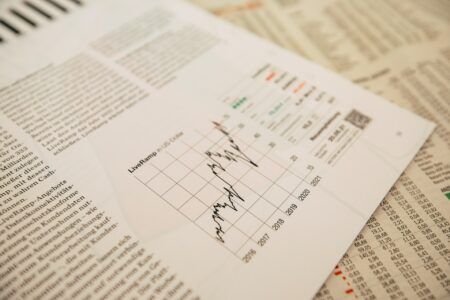A decade ago in 2008, Arthur Hayes started his career in finance as a graduate trainee at Deutsche Bank. Despite some turbulence in the financial industry over the year, notably the collapse of UK mortgage lender Northern Rock, the atmosphere within financial markets was still mostly positive, with the market coming off an all-time high a few months earlier.
The 2008 Financial Crash
On September 15, 2008, Lehman Brothers went into Chapter 11 bankruptcy, becoming the largest bankruptcy in history and kicking off a disastrous domino effect across the financial industry. From the heady, caffeine-fueled environment Hayes came into, the financial sector went into meltdown, triggering a global recession and leading to unprecedented bonus cuts and job losses within the sector.
From coming in with a vision of being like the Hong Kong traders who took helicopter rides to Macau to celebrate successful bets, Hayes suddenly found himself in a new environment straddled by new rules, compliance regulations and employee surveillance, struggling to hang on to his job. Eventually he switched to Citibank in an attempt to get away from the threat of losing his job, but the threat soon resurfaced.
In 2013 Hayes was let go of Citibank in one of a number of periodic efficiency culls and less than 5 years into his banking career. He realized now he had to make a choice, as he could either find another job in the industry, or leave it and get into another career. Hayes chose a third option – trading bitcoin.
From Arbitrage to BitMEX
At the time, bitcoin was trading at around $100 and was still relatively unknown. Hayes saw an opportunity for bitcoin arbitrage trading after spotting substantial price differences across crypto exchanges Bitfinex and other Chinese exchanges. In some cases, Chinese exchanges were offering bitcoin at 20% to 40% premium.
Hayes started buying bitcoin from Bitfinex to then sell it on the Chinese market, pocketing the difference. To get around Chinese capital movement restrictions, he would travel to the mainland by bus and physically withdraw the maximum amount of cash permitted (about $3,100) from his bank, and would then return to Hong Kong.
After doing this for a few months, Hayes decided to set up a derivatives trading platform for bitcoin. Working with Ben Delo, a former high-frequency trading systems developer at JPMorgan Chase, and Samuel Reed, an American web platform developer, BitMEX was developed and tested for 11 months before going live in 2014.
Describing his decision to leave traditional banking and go into the unstructured crypto space, Hayes said:
My family and friends always knew I wanted to be an entrepreneur not a career banker. They also saw how un-engaged and bored I was while I was trading at various investment banks. [I] thought given my background as a derivatives trader, that I could build something better.
Registered in Seychelles and operating out of Hong Kong, BitMEX offers peer-to-peer bitcoin derivatives trading matching buyers and sellers, much like Hayes once did at Deutsche Bank.
Low Transaction Volumes and Growth
Initially BitMEX struggled, as it failed to get enough liquidity to attract traders. For most of 2015, Hayes says, trade volumes on BitMEX were “pathetic”, but he insists he never considered throwing in the towel.
The turning point came in October 2015 when BitMEX raised its leverage limit from 3x to 100x, effectively allowing users to bet on the cryptocurrency with heavily leveraged positions. This gave Bitmex a much-needed liquidity boost and helped it gain market share.
Since then the crypto derivatives exchange managed to keep growing at an astounding pace, to the point it registered more than $800 billion worth of trades on its system over the past year, including $8 billion in a single day.
Hayes is not resting on his laurels by any means. Speaking to Tech in Asia recently, he outlined his vision for BitMEX to become bigger than some of the world’s largest conventional asset exchanges.
He was quoted as saying:
2018 will be the best year yet for BitMEX. Liquidity continues to grow. The volatile nature of the crypto markets is perfect for a derivatives trading platform. Regardless of whether the market goes up or down, there are an equal number of winners and losers on Bitmex. Our goal is to become the largest trading platform in the world for all assets, not just in crypto. We want to trade more notional value than the Chicago Mercantile Exchange.
As CryptoGlobe recently reported, BitMEX is moving from its current office in Hong Kong’s warehouse district to the entire 45th floor of the Cheung Kong Center, the world’s “most expensive” office building located in Hong Kong’s city center, where its new neighbors include Goldman Sachs and Bank of America.








